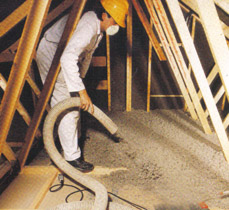Best Insulation for Homes
Understanding the Variables before your Choose!
Asking what is the best insulation for homes is a valid question, but perhaps not the right one to help you make a decision on what insulation is the best for YOUR home.
Different types of insulation are better suited to different applications within the building envelope, so we will look at both the areas of your existing or new home that can be insulated as well as the options available to use.

How Does Insulation Work
Though there are many different types of insulation, they all work on the one principle which is to 'trap air'. Whatever the insulation type, its job is to slow down the movement of air thus slowing the transference of either cold or hot air through the building envelope. Different insulation materials perform this task to differing degrees. The climate where you live will also influence the style and level of insulation that your home requires. Choosing Insulation Materials
When selecting insulation materials the main criteria to consider are- - R value - This measures the performance of the insulation material. The higher the R value the better it will perform.
- Environmental Impact - Many insulative materials are produced from waste materials making them more sustainable.
- Health - Some insulation releases fibres during and after installation, important for allergy sufferers, and some are more flammable than others.
- Price - The is a large variation in price for different materials.
- Location/Climate - Where you live will influence the type of insulation materials are suitable for your climate.
- Acoustic Properties - some materials are selected for their superior acoustic, as well as thermal properties
Governments are increasingly supporting the upgrading of older homes with insulation rebates and insulation tax credits. In the long term insulation makes homes cheaper to run and reduces the load on electrcity/gas through the use of heating and cooling appliances, making it a worthwhile investment if you plan to live in your home for the next 5-10 years. Ideally the aim is to insulate to improve comfort levels in extremes of weather whether hot or cold, but to do so with healthy insulation materials which do not add to the 'toxic load' of the home.
 Home from Best Insulation for Homes Home from Best Insulation for Homes
Saving Energy | Sustainable Building
Home | Site Map | Site Policies | Contact Me

|




